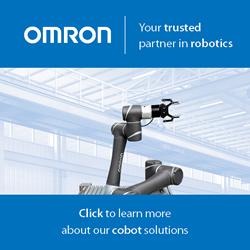For entry level manufacturing positions, higher education is not normally required. Instead, a personal and commercial drivers license, and special certifications such as an Occupational Safety & Health Administration Certification, Food Safety Program education, and HAZM
Hot Jobs Study Reports IT a Top Industry
Andrew Speer | Randstad Technologies
What are the hottest jobs in IT in 2017?
We expect big data engineer, full stack developer and security engineer to demonstrate continued momentum and we anticipate emerging jobs such as Internet of Things (IoT) engineer and virtual reality/augmented reality engineer to increase as well.
How were the jobs determined to be the most in-demand and emerging jobs?
We worked with our client and talent advocates to collect data to determine the roles that are the hottest. Our team reviewed the current workforce trends, including available positions, number of qualified candidates added to our database, market growth and specific skillsets. After considering these factors we were able to suggest the most in-demand jobs.
Advancements in technology, enterprise strategy and the evolution of consumer product evolution have spurred an increase in demand. New roles to keep up with new technological breakthroughs and innovation are steadily on the rise, with emerging technologies such as virtual reality and IoT calling for IT workers specialized in these areas.
How does the IT industry compare to other hot industries in terms of growth, job availability, and candidate pools?
The IT industry has an unemployment rate of only 2.6%, over 2 points below the general national average. Also, there are 373,626 available positions in IT nationwide.
How about wages, how do they compare with other hot industries and what ranges are common?
For IT positions, salaries range from $87,000 to $131,000 a year. Compared to other industries, IT wages are among the highest.
What additional training or education should people looking for IT jobs get to be the most competitive?
For positions in IT, higher education is important, specifically degrees in IT, computer science, engineering or other STEM subjects. Knowledge of Big Data, Java, HTML, cybersecurity systems and other programs can be advantageous with more organizations requiring their IT staff to have expertise in these areas. The good news, there are several levels of IT and it is the perfect industry to enter and grow (up or horizontally).
What do employers need to know to best position themselves to remain competitive in hiring the best IT candidates?
The IT industry is a competitive marketplace for talent, and with low unemployment and a skilled labor shortage, passive candidates need a reason to consider a new opportunity. That means employers are challenged remain competitive in terms of what they offer in salary and benefits in order to draw in top candidates. Additionally, IT employers and STEM professions should consider ways to revive the traditional workplace to attract many of the first representatives of Generation Z who are entering the workforce with a passion for personal technology and social media engagement.

About Andrew Speer
Andrew is responsible for the overall strategy and execution of the technology solutions and national strategic organizations within Randstad Technologies. As an industry veteran with two decades of experience, he embraces innovation and solution-oriented planning. Andrew has successfully lead a number of ambitious transformations, has been honored with multiple distinguished service awards and is a frequent speaker at industry events. Andrew graduated from Sonoma State University with a bachelor’s degree in business management.
The content & opinions in this article are the author’s and do not necessarily represent the views of RoboticsTomorrow
Comments (0)
This post does not have any comments. Be the first to leave a comment below.
Featured Product

